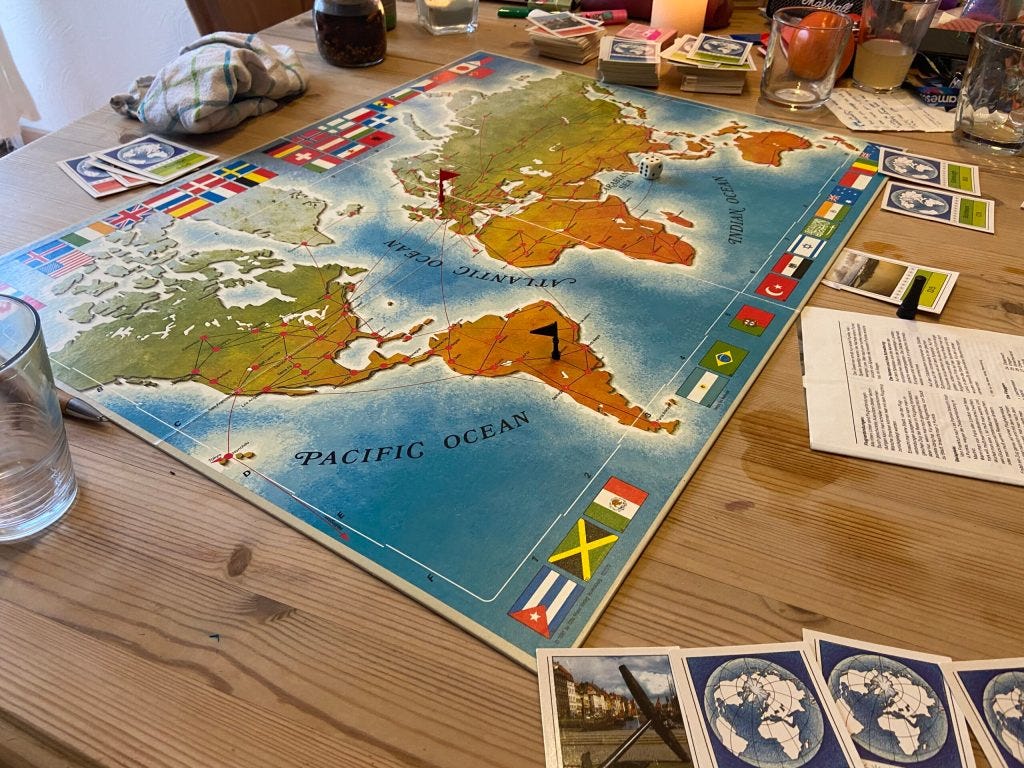On Travel, Novelty, and Alcohol
When I arrived in Berlin at age 19, I became magically old enough to drink. The first time I went to a bar, I said Hallo to the guy next to me, yet he answered with smooth American English. The expat and I began talking and he shared something with me that I have never forgotten.
He told me, you can move around the world but whatever change you are looking for has to come from within. While he spoke positively of his experience, he cautioned using travel and novelty to distract from improving ourselves. Two years and dozens of countries later, I was reminded of this lesson while studying stoicism.
Seneca, in his letters to Lucius, writes:
'How can you wonder your travels do you no good, when you carry yourself around with you? … you are running away in your own company. You have to lay aside the load on your spirit. Until you do that, nowhere will satisfy you."
While travel can be a distraction, travel and more generally, novelty has the potential to improve our lives.
Why leave home?
Firstly, when we leave home, we shake up our habits. Too often, we mistake habits for a part of our identity. For example, you might check Instagram hundreds of times a day and believe you are someone who can't concentrate. In entering a novel environment out habits are exposed.
For example, during my first semester of college, I started drinking soda because it was free. Until I went back home, I didn't realize this habit was hurting me. When I got back the next semester, I was careful not to start that habit again. The awareness came from leaving the habitual environment.
Pulling the leash
An incident with my parent's dogs reminded me of this. I wanted the dogs to come inside with me, so I pulled toward the house. If I yanked the leash while the dogs were standing, the dogs stayed solid as a rock. If I jiggled the leash for a few seconds before tugging, the dogs would easily succumb to my force. I think of travel, and novel situations, as the jiggle that makes behavioral change more likely. We still need to decide where to yank the leash.
A more memorable life
Novelty also triggers memory. For example, you probably remember staying home from school on a snow day (or a hurricane) but forgot thousands of average school days. Without novelty, life would be uneventful.
On the other side, novelty influences the high schooler addicted to pornography; the cheater who cheats, and the college student who pursues binge drinking and casual sex.
More On Alcohol
I believe humans love alcohol because it creates novelty. We are so desperate for adventure that we willingly enjoy a few hours of insanity. Let that sink in.
Because of the adventure, I used to love drinking too. It made my life more exciting and unpredictable. However, it did not provide me with a future I could look forward to—actually, it provided me with the exact opposite. The solution was to find something more exciting.
A new source of novelty
For me, that has been language learning. Novelty is one of the key motivators in my studies. Every day I discover something new, be it a word, idiom, and of course, friendship. When I began learning German, the trajectory was vague, and in hindsight, that was a beautiful thing. Now learning Chinese, I am even less sure what is to come, but it will undoubtedly be exciting.
In Conclusion
We can use travel and novelty to improve our behavior and pursue nobler aims. However, novelty can be a distraction and lead to addictive behavior.
Lastly, I understand medium to long-term travel is not within everyone’s reach. The good news is you can create novelty right where you are by rearranging your habits or even just saying hello to a neighbor. Have fun.








